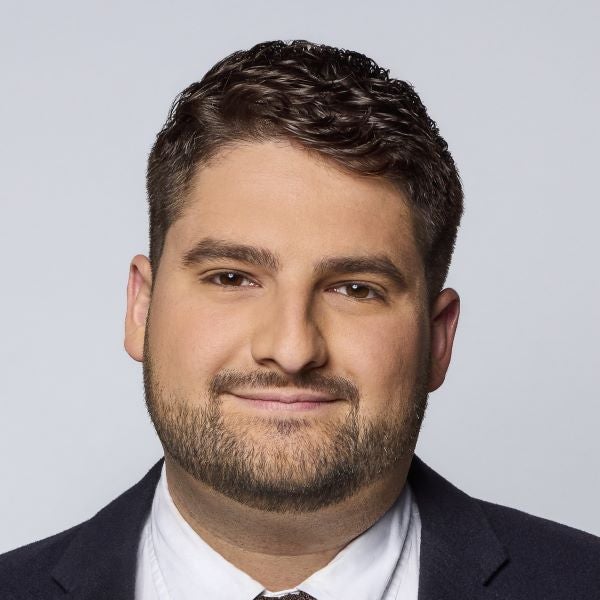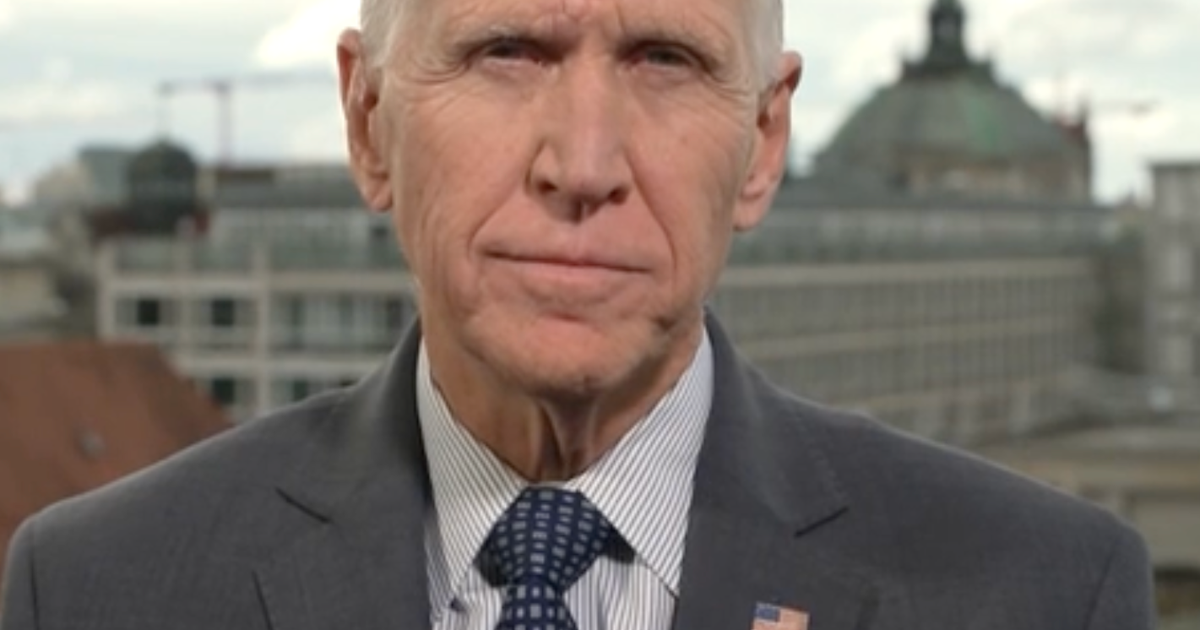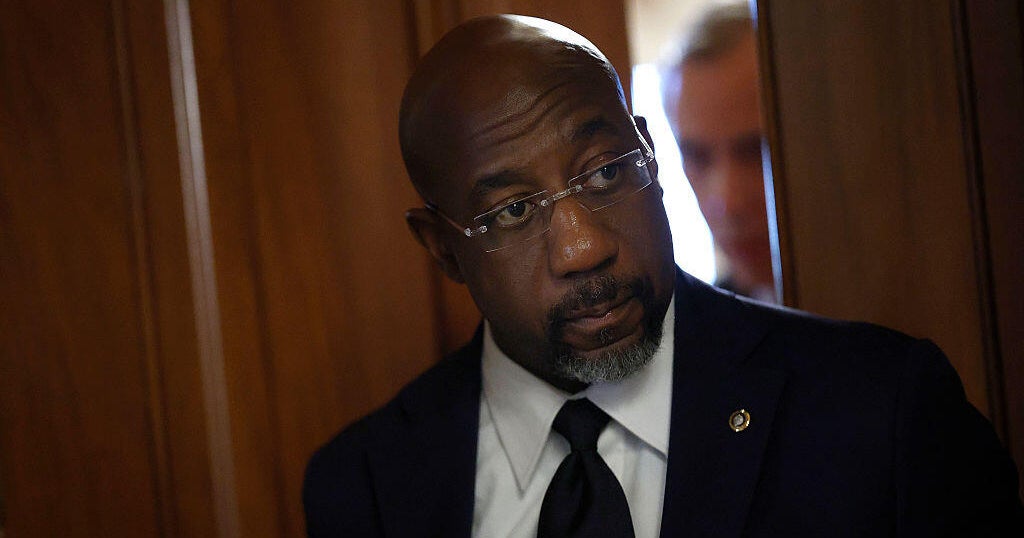Sen. Mark Warner on Putin and Russia's war in Ukraine - "The Takeout"
The chairman of the Senate Intelligence Committee, Sen. Mark Warner, isn't sure whether Russian President Vladimir Putin could resort to using biological or chemical weapons, as the war in Ukraine enters its second month, and Russian forces have been stalled in their attempt to take over the country.
"I so wish I knew," Warner told CBS News chief Washington correspondent Major Garrett on "The Takeout" podcast this week. As Putin grows into "a more and more and more isolated figure," he could lash out, said Warner.
The Virginia Democrat applauded the intelligence community for its "forward-leaning" moves like publicly sharing Russia's plans to topple Ukrainian leadership by coup, and its plots to use a false flag attack as a pretext for the assault on Ukraine. He added that he was deeply concerned by the fact that China and India have not condemned Russia's invasion.
"I have been bitterly disappointed by the fact that India, who aspires to be a great power, is basically taking a pass and has abstained from condemning Russia. And I think that is both a short-term and a long-term mistake by the Indian government," Warner said. He added that "long-term economic challenges we have with China really are the issue of the future."
Warner and Garrett also discussed this week's Supreme Court confirmation hearings for Judge Ketanji Brown Jackson, and the death of the first woman to be secretary of state, Madeleine Albright.
Highlights from this week's episode
Ketanji Brown Jackson's Supreme Court confirmation hearings: "I think she held up extraordinarily well. I think she will be confirmed. I believe and hope that it will be bipartisan. I feel like some of the Republicans on the committee were basically auditioning to the farthest-right constituencies for 2024. I'm not sure they moved anybody's needle. Matter of fact, I was happy to see folks like Senator Romney and others not on the committee, but saying some of this some of these charges seem to be extraordinarily off-base."
Madeleine Albright's death: "I count myself as very fortunate, and probably half the Senate falls into this category that saw her as a mentor and a friend. She was tough, but she was humane, and she helped school me in my early days in the Senate on issues, for example, around the rise of China… She was clear eyed. She will be missed."
Assessing Ukraine's fight against Russia: "What I think we are seeing playing out in real time right now is the Ukrainian people under the great leadership of President Zelenskyy, the Ukrainian people literally saying we will vote with our lives to try to get a piece of what you in the West and we in America have always been about a free press, the right to agree and debate and disagree without without going to arms, the notion of an independent judiciary, democracy. Ukrainians are fighting for it. I think Zelenskyy again, has been such an articulate spokesman on this topic. This is more than about Ukraine…This is a good versus evil in terms of what we were standing up against with Vladimir Putin's authoritarian, barbaric invasion. Candidly, those countries that side with Russia, like China, another authoritarian state, I think it may unify us not just vis-a-vis Russia, but also about the emerging challenge with China."
Role of China and India in the Russia-Ukraine war: "I think clearly China has picked the wrong side. And I think our — that long-term economic challenges we have with China really are the issue of the future… I have been bitterly disappointed by the fact that India, who aspires to be a great power, is basically taking a pass and has abstained from condemning Russia. And I think that is both a short-term and a long-term mistake by the Indian government."
Intelligence community's role in Russia-Ukraine conflict: "They've been very forward leaning on, you know, getting ahead of what Putin was hoping to do to try to have any false flag operation that it was somehow said this invasion or Putin's actions were caused by Ukrainian actions… Some of your listeners may recall there was the notion that there was going to be a coup, and then the British said, if the Russians cause a coup, this is the guy that's going to be put in. And then the American intelligence community said there's going to be a video and it's going to show dead bodies, it's actually Russian propaganda. And time and again, the intelligence community was forward leaning. Spies aren't don't like giving up information. The fact that they've been this forward leaning, I think really caught Putin off guard. What they've also been willing to do is share virtually, real-time with our allies and with Ukraine, intelligence.
Russia's reluctance to use cyber-attacks in its invasion: "The fact that they have not launched those attacks, I can tell you from all of the experts in the intel community, in the military, we still don't have a real answer why they have not been launched… [Russia could be] saving these tools to be used against the West, against NATO or against America. I think it was right for President Biden to put all of us on notice. I think we need to expect and anticipate as Putin's inner circle gets more and more pressed, as the Russian economy shrinks more and more due to the sanctions, that he will lash out and the first year of lashing out will be attacks."
Could Russia use chemical or biological weapons in Ukraine? "I so wish I knew the answer to that question. What we do know is that Putin has become a more and more and more isolated figure. And I think, again, any of your listeners have seen these images where Putin sits at one end of the table and you've got a visiting foreign dignitary or his own advisers at the other… This is a dictator that as we've seen in history, as dictators become more and more isolated, less and less inputs, we were concerned on the front end of this conflict, was he even getting accurate reports of how badly the Russian military was doing? Because nobody wants to tell the boss bad news because, you know, you might lose your job or more than your job."
Executive producer: Arden Farhi
Producers: Jamie Benson, Jacob Rosen, Sara Cook and Eleanor Watson
CBSN Production: Eric Soussanin
Show email: TakeoutPodcast@cbsnews.com
Twitter: @TakeoutPodcast
Instagram: @TakeoutPodcast
Facebook: Facebook.com/TakeoutPodcast





